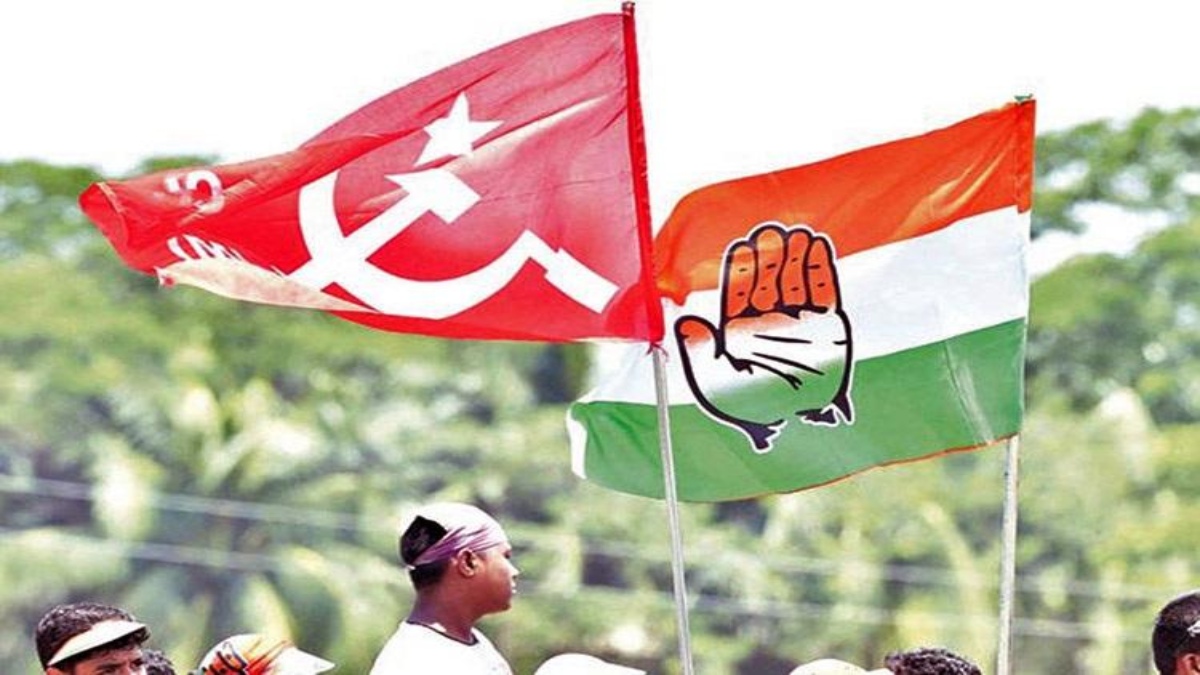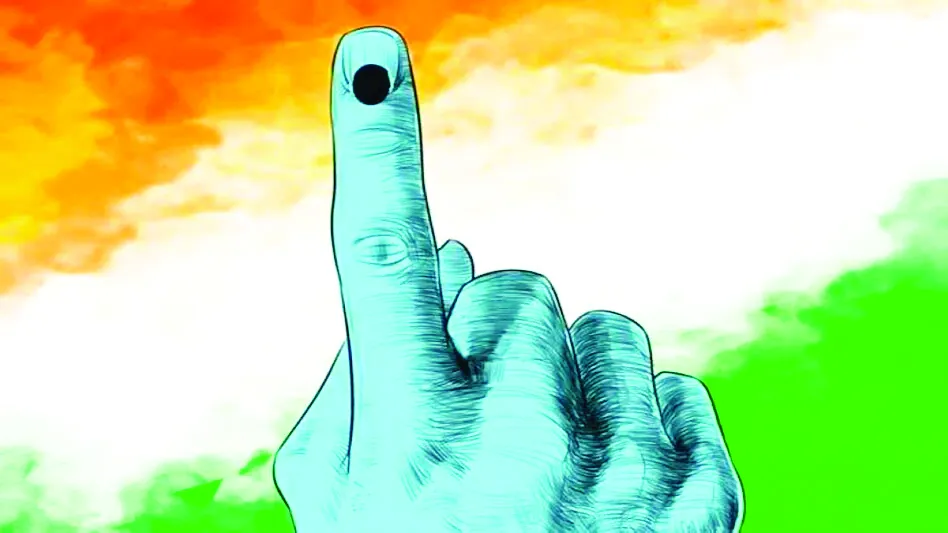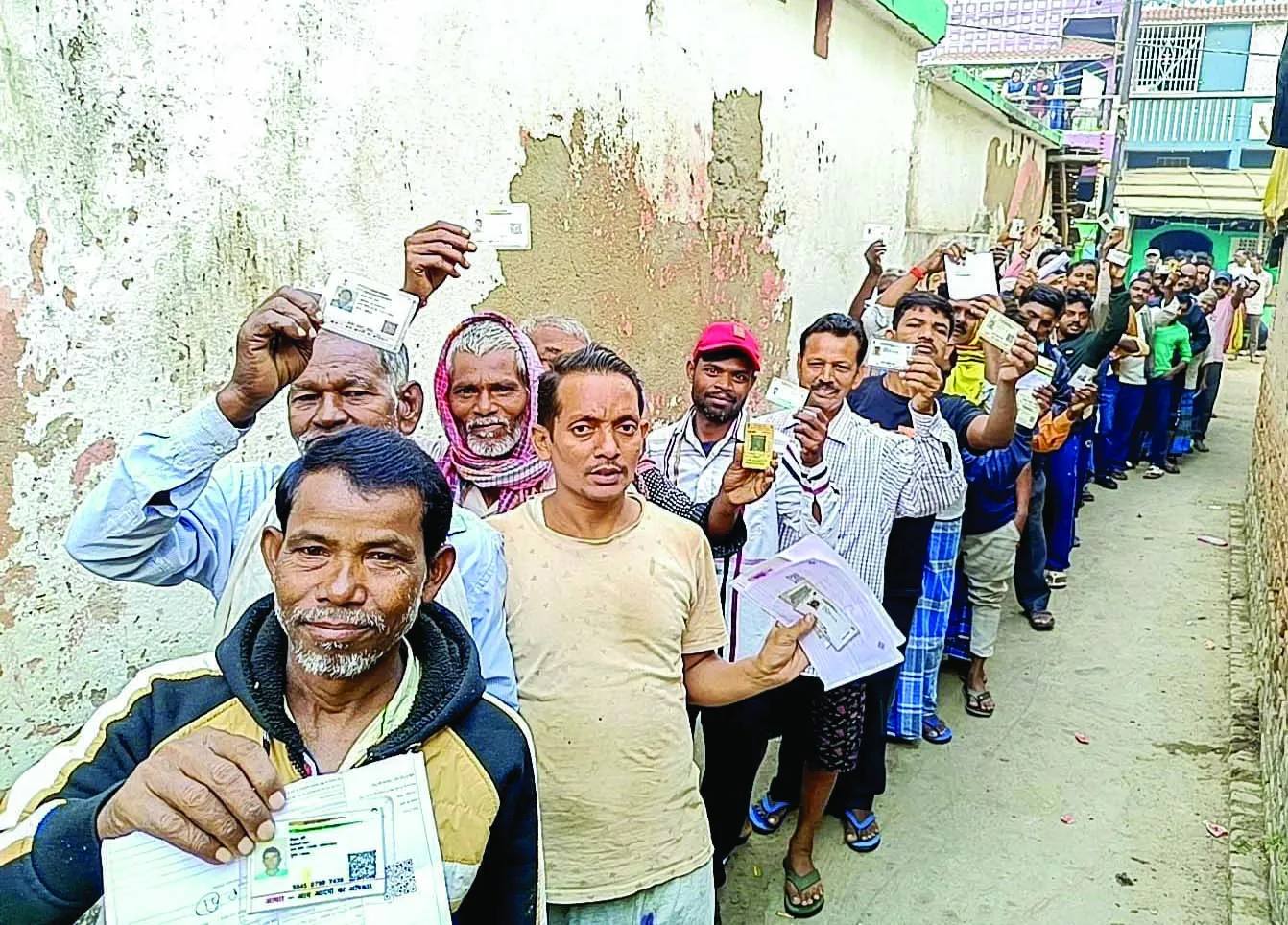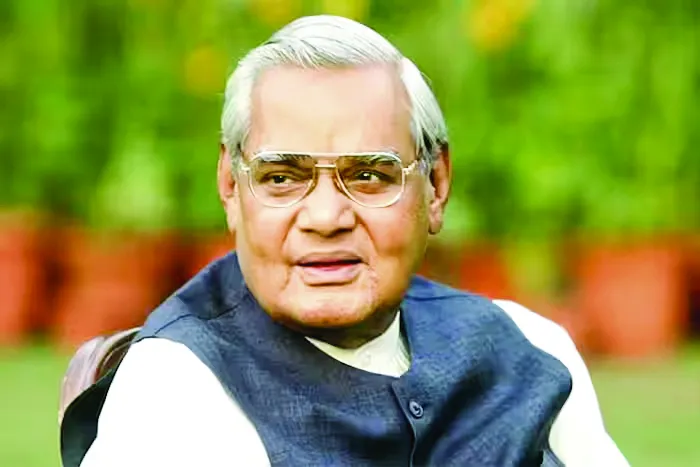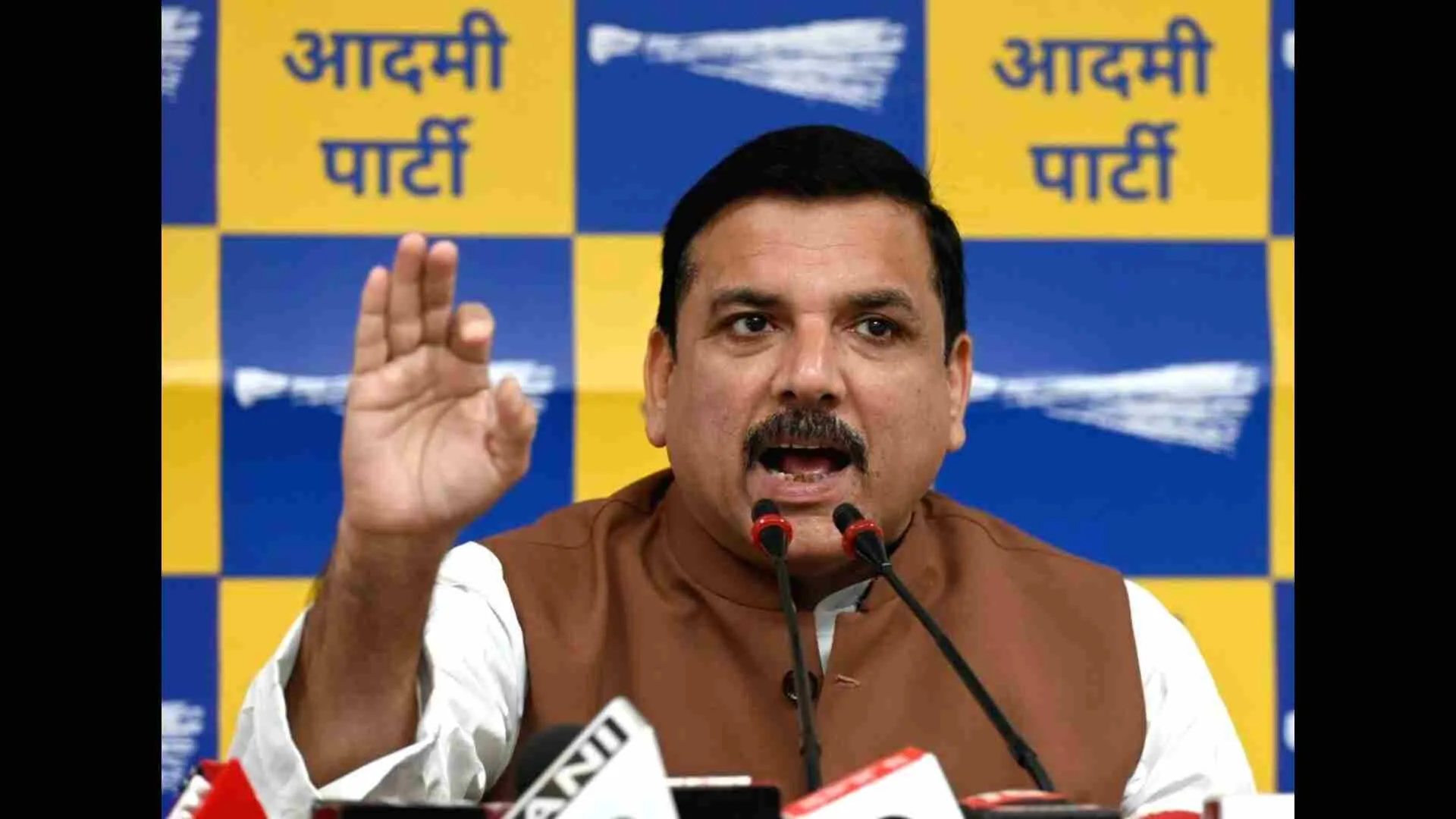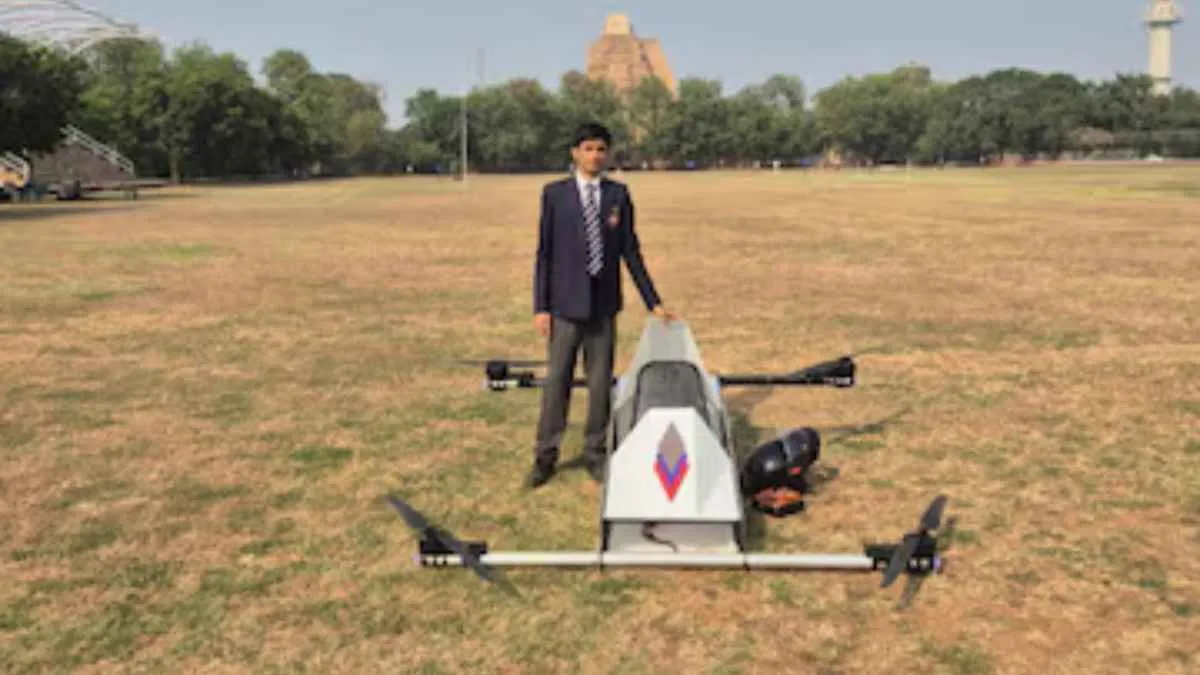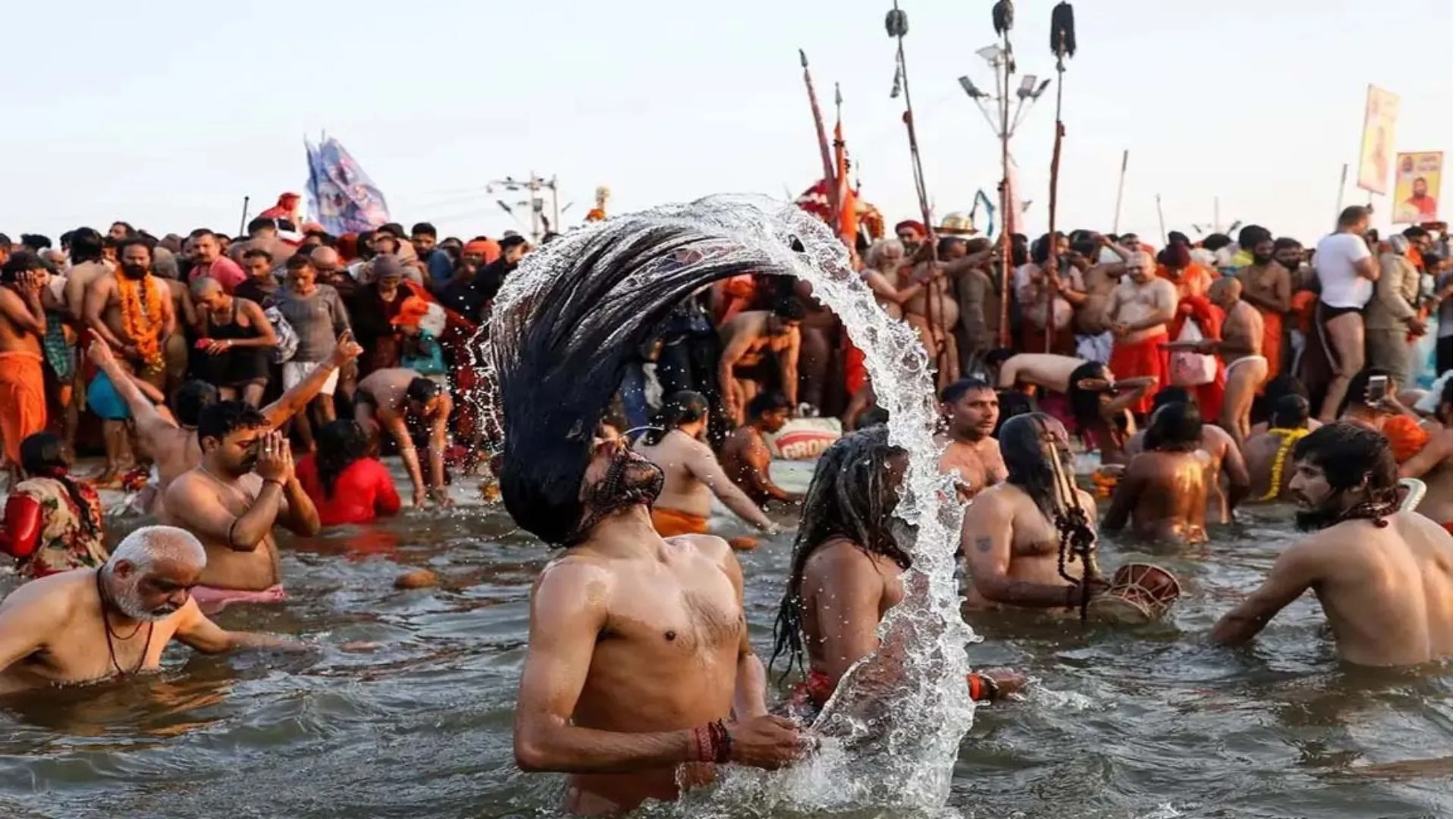Despite being bestowed with nature’s bounty, Kerala has been in the news for all the wrong reasons in past years, thanks to the debilitating politics of the Left Democratic Front (LDF). The Pinarayi Vijayan government will go down as the one which took Kerala backwards in all respects, with corruption being the LDF’s mainstay. The “Rebuild Kerala’’ initiative following the 2018 floods was nothing but hype and nothing happened thereafter. The projects ended up as mere discussions in five-star hotels and fancy seminars. Most of the flood rehabilitation houses were constructed by charity organisations. Many farmers are yet to receive financial help. The amount of Rs 2,120 crore obtained by the Chief Minister’s Distress Relief Fund (CMDRF) is yet to be spent fully. Instalments of loans from the World Bank for “Rebuild Kerala” were spent on salaries and pensions of government staff instead of being deployed for reconstruction work. The hard truth is that under the CPI(M)-led LDF rule, Kerala has not only witnessed industrial stagnation but also seen NRI entrepreneurial activity take a backseat, with some even committing suicide due to red tape and harassment by the LDF.
The sad irony is that the ruling LDF, which rode to power highlighting the earlier United Democratic Front (UDF) government’s extravagance and corruption, adopted the same path once it assumed power. No one has forgotten the Congress/UDF’s Oomen Chandy or his embarrassing role in the solar scam. Unfortunately, the LDF regime took a leaf from the UDF’s book and indulged in large-scale extravagance by according cabinet rank to the chief whip and by creating a number of unnecessary posts in the last five years. The vigilance department is a mere paper tiger, with the real culprits of the Palarivattom flyover scam, for example, going scot-free due to patronage by the ruling Pinarayi Vijayan government. The Kerala Infrastructure Investment Fund Board (KIIFB) has also reportedly become a symbol of lethargy, incompetence and rampant corruption.
The Vijayan regime has been following the footsteps of TMC’s Mamata Banerjee by promptly re-branding and claiming as its own some of the most successful schemes of the Modi government. For instance, it was the Modi government which took the initiative to complete the Kollam and Alappuzha bypass, the work of which was stalled by both LDF and UDF governments for well over 45 long years. Kerala has received Central assistance like never before after the Modi government took charge at the Centre. It was the Centre that gave 42% of the tax share to states under the 14th Finance Commission and then 41% under the 15th Finance Commission, with Kerala being amongst the top beneficiaries in terms of devolution of money to states. The MGNREGS share to Kerala was allocated in advance by the Modi government. For the first time, the state was provided Rs 4,000 crore to tide over its fiscal deficit. The Centre’s intervention to help Kerala increase its borrowing under the ways and means advances (WMA) limit also proved beneficial for the state.
The LDF government, on the other hand, has tried to torpedo many Central projects that were launched for the common man. The LDF fiercely opposed the PM Jan Dhan Yojana. The Left also tried to scuttle projects like the Kisan Samman Nidhi and Ujjwala Yojana that provided free LPG connection to the poor. The LDF government also diverted funds provided by the Centre in the wake of the Ockhi cyclone and the 2018 floods, with more than Rs 2000 crore being wasted or misused.
The latest developments in the murky Kerala gold smuggling case, which led to the arrest of M. Sivasankar, former principal secretary to Kerala CM Pinarayi Vijayan, in October 2020, are a glaring indictment of how rules were flouted to abet corruption in high places. A few days back, the Enforcement Directorate moved the Kerala court, seeking a CBI probe into the case registered by the Kerala Crime Branch against the ED. What a travesty of justice, that rather than probing the nefarious nexus between gold smugglers, politicians of the LDF and their prized bureaucrats, the Kerala Crime branch had the audacity to file a case against the ED, which is only doing its job of unravelling the truth in the multi-crore gold scam case. The ED has detailed admissions of statements made by the key accused in the gold scam, including Swapna Suresh. Interestingly, Swapna has now accused the Kerala Speaker of meeting with a Sharjah leader in Dubai to obtain free land for an institution which the Speaker wanted to open. The Kerala gold smuggling case is related to the seizure of over 30 kg of gold from diplomatic cargo at the Thiruvananthapuram airport in July 2020. The gold was found in the diplomatic cargo addressed to the UAE Consulate General’s Office in Thiruvananthapuram. This is what made the seizure sensational, because diplomatic cargo enjoys immunity from routine examination by customs department officials at airports. Swapna Prabha Suresh, aka Swapna Mohammed, who is a resident of Dubai and was an employee of the Consulate for around three years before being sacked in 2019, reportedly had unfettered access to CM Pinarayi Vijayan’s office. M. Sivasankar was not only the Kerala CM’s principal secretary, but also the head of the Kerala State Information Technology Infrastructure Limited (KSITIL). The probe by the NIA and ED later found that Sivasankar had recommended Swapna for a position with the KSITIL, which required the applicant to be a graduate. Though Swapna was not a graduate, and hence not eligible, CM Vijayan’s office allegedly gave the approval for her recruitment at KSITIL, in a clear case of political harakiri.
CM Vijayan has very conveniently dismissed the charges of corruption against his government, saying, “The Opposition is trying to foist the doings of officials on the government.” The moot question is, how can CM Vijayan claim the moral high ground when his closest confidante and former principal secretary is involved in the gold scam? How is it possible that Sivasankar was engaging in unbridled corruption without CM Vijayan’s knowledge and blessings? Even if one hypothetically assumes that the CM was unaware of what officials in his government were up to, does that not show how incompetent Vijayan is? How can a multi-crore scam happen right under the CM’s nose, with the CM supposedly having no clue about it?
Apart from the gold scam, the CBI has recently taken over the probe and registered a case for FERA violations in a housing scheme for the poor, which is part of the Vijayan government’s flagship project called the “Life Mission” project, which is being constructed with financial aid from the Emirates Red Crescent. Emirates Red Crescent is the UAE affiliate of the International Federation of Red Cross and Red Crescent Societies. The CBI will probe the deal for the construction of a 140-apartment complex at Wadakkanchery in Thrissur district, signed between Red Crescent and Kerala-based UNITAC. The scam involving “Life Mission” housing project is linked to the gold smuggling case. The key accused in the smuggling case, Swapna Suresh, has confessed to the ED and NIA that Rs 4.25 crore had been paid as commission in the housing project and she also pocketed a part of the kickbacks. Kerala’s Higher Education Minister, K.T. Jaleel, is also under the ambit of investigations, showcasing how CM Vijayan’s government is steeped in widespread corruption.
A point worth noting here is that, since 1977, Kerala has always alternatively voted for two fronts—either the CPI(M)-led LDF or the Congress-led United Democratic Front (UDF)—to the Kerala Assembly. In the 1977 Kerala Assembly election, the polls after the Emergency and the first election after the delimitation where the number of legislative seats increased from 133 to 140, the United Front secured a majority. The front was led by the Indian National Congress (INC) and Communist Party of India (CPI), and K Karunakaran became the Chief Minister. The subsequent election, the sixth Kerala Assembly election in 1980, however, set the stage for the LDF and UDF, which were formed from the constituent parties of the United Front. In the 1980 election, the LDF formed the government in Kerala under the leadership of E.K. Nayanar.
In recent times, this once socially advanced state has become the victim of radicalisation by communal, anti-national outfits like the Popular Front of India (PFI), which has spread its tentacles all over Kerala. Kerala was once revered, as its social indicators were on par with the developed world. But thanks to the rabid, hate-filled politics of the LDF and the UDF, large swathes of the state have been thrown into abject poverty, with a large chunk of the rural and tribal population living well below the poverty line. Barring tourism, industrialisation is a far cry within Kerala. The reported rape of a nun by Bishop Franco Mulakkal in Kerala shows the true underbelly of Kerala’s lopsided social structure, where despite a favourable gender ratio, most people ignored this horrific crime, with even the state’s major political parties like the LDF and UDF turning a blind eye to the ghastly rape.
More than 30 million people live in the densely populated state, a third of which is covered by forests and verdant coconut trees. Kottayam is called India’s “land of letters, latex and lakes” as it alone accounts for over 15% of India’s rubber production. Yet, due to lack of political will, Kerala’s rubber plantations have never quite achieved the kind of prominence they deserved, with rubber production in the last seven years remaining stagnant at between 6.5-7.2 lakh tonnes by and large.
Kottayam is also famous as it is the gateway to the pilgrim centres of Sabarimala, Mannanam, Kuruvilangad, Vaikom, Ettumanoor, Bharananganam, Erumeli, Manarcad, Aruvithura and Athirampuzha. The famous Vaikom Siva temple, associated with the legendary sage Parasurama, is just 40 km north of Kottayam town and is a typical example of Kerala temple architecture. So are the temples of Perunna, Vazhappally and Thrikkodithanam near Changanassery. The temple at Ettumanoor, about 12 km north of Kottayam, is famous for the exquisite ancient murals and ‹Ezharaponnana’ or the 7½ elephants finished in gold. It is therefore a shame that the Vijayan government has done nothing to put Kottayam, endowed with such rich temple history, on the international tourist map.
More people in Kerala are taking their lives than anywhere else in India. Alcoholism is a dire social problem and the state has India’s highest per capita alcohol consumption. Due to decades of abuse of power by the LDF and UDF, the state has little money to fund healthcare and education, leading to an explosion of expensive private hospitals, schools and colleges which the poor cannot afford. Road networks are extensive, but the state has few highways. Kerala lives off remittances from the Middle East and it lacks a manufacturing base. Keltron, one of the first and largest electronic undertakings in the state sector in Kerala, had been pushed to the throes of bankruptcy by rent-seeking politicians, before it eventually recovered. Kerala’s biggest advantage, a high literacy rate, has become a strange liability as the vast majority of educated unemployed go abroad for work. Can Kerala afford to become another Cuba? No! And for that, the electorate must choose wisely and shun both the LDF and the UDF.
Kerala is an over-politicised and “over-extended” state. The argument goes that radical unions, bolstered by successive Communist governments, have acted as “pressure groups advancing particular vested interests”. Also, decades of militant trade unionism led by the Communists has led to a poor work ethic and an “estrangement” from private investments – a condition similar to India’s West Bengal, which was ruined for 34 years by Communists and then by a corrupt TMC. The Kerala model is grinding to a halt because the social and political groups, having fulfilled their original agenda of filling their coffers, now have no development agenda to take to the people.
Clearly, Kerala needs a new contract between the state and its people to move ahead and reclaim its lost glory. The inclusive politics of development, progress, modernity and corruption-free governance that Prime Minister Narendra Modi epitomizes is the elixir that Kerala desperately needs at this stage. The argument that Kerala has a progressive social order is also turning out to be a big hoax, given that Kerala has consistently been reporting the most violent crimes against women, as per NCRB data. Radicalisation by terror outfits like the PFI, which supposedly has links with ISIS, are also turning Kerala into a hotbed of Hinduphobic violence and mayhem.
Speaking of violence, which is in the DNA of Communism, unproductive and violent trade unionism has also infested the agricultural sector in Kerala. The agricultural labour unions are so strong that they are reluctant to work sincerely and will not allow mechanisation and automation in this field either. As a result, hundreds of thousands of hectares of cultivatable land are lying unutilised and agricultural production is suffering badly. Similarly, even the trading sectors are infested with unionism and lobbying is so deeply entrenched that the basic economic principle of a demand-supply mechanism that dictates market prices is not being allowed to work. Even when there is an abundant supply of goods, these traders engage in black marketing and profiteering by creating artificial scarcity and keeping the prices up. So, it is the middle class who suffer the most in Kerala, while the trade unions backed by the Left have a field day.
E. Sreedharan, also known as the “Metro Man of India”, joined the BJP recently. He is best known for constructing the first Metro in the country and the engineering marvel which is the Konkan Railway, which connected southern India to the rest of the country in a rapid manner. Sreedharan is just the kind of leader Kerala needs. Speaking at a rally at Shangumugham, the 88-year-old Sreedharan said, “For the last 67 years, I was a government servant. Many people have asked me why I ventured into politics after these many years. For 67 years, I worked as part of many projects for this country. I am still energetic and want to utilise my energy for the state of Kerala. Whatever responsibility is given to me I will take it up with all courage and energy.”
In the final analysis, the hard truth is that God’s own country has been ravaged for over four decades by successive LDF and UDF regimes, which have simply fattened their pockets and done precious little to improve the lot of Keralites, who are almost entirely dependent on overseas money orders, which gives Kerala the unenviable term of “Money Order Economy”. During the Covid pandemic, which adversely affected all nations globally, including the Middle East, the money orders stopped abruptly as many people in the Gulf lost their jobs, bringing, in turn, untold misery upon Kerala, which is grappling today with ballooning deficit, falling growth and rising joblessness, thanks to complete apathy by CM Pinarayi Vijayan, who has done nothing for the people in the last five years. While India under PM Modi is being applauded worldwide for its outstanding handling of the Covid pandemic, Kerala is a textbook case of how shoddy leadership and gross mismanagement can cause untold damage. With a little over 2% of India’s population, Kerala accounts for more than 8% of all Covid cases in India. Along with Maharashtra, Kerala also accounts for over 70% of all active Covid cases, which reflects quite poorly on the LDF.
In sharp contrast, Prime Minister Narendra Modi has always treated Kerala favourably and fairly. Recently, the PM inaugurated a bevy of infrastructure projects in Kerala, including the 2,000-MW Pugalur-Thrissur high voltage direct current (HVDC) power transmission corridor. This power transmission corridor would ensure the transfer of a large quantum of power from the national grid to the state and guarantee reliable access to electricity. The Pugalur-Thrissur line is Kerala’s first HVDC inter-connection with the national grid and the country’s first system to use the voltage source converter technology. Stating that “development is our aim, development is our religion,” Prime Minister Modi also inaugurated, via video-conference, a 50-MW solar park in Kasaragod and a 75-mld (million litres a day) water treatment plant at Aruvikkara, Thiruvananthapuram, and launched the work on two Smart City Mission initiatives in the capital—the Rs 427 crore 37km Smart Road project and the Integrated Command and Control Centre at the City Corporation. “The great Malayalam poet Kumaran Asan said, ‘I’m not asking your caste, sister, I ask for water. I’m thirsty’. Development and good governance do not know caste, creed, race, gender, religion or language. Development is for everyone,” PM Narendra Modi further added.
Kochi and Thiruvananthapuram have made significant progress under the Modi government’s Centrally sponsored Smart Cities Mission. Under the mission, 27 projects worth Rs 770 crore had been completed in the two cities, while 68 projects worth Rs 2,000 crore were in the pipeline. As many as 175 water supply projects worth Rs 1,100 crore were being taken up in Kerala under AMRUT, another Central Government scheme. The Modi government has been giving the utmost importance to the blue economy. Development strategies targeting the fishermen community are based on “more credit, increased technology, top-quality infrastructure, and supportive government policies” to ensure that India becomes a hub of seafood exports, with Kerala at the forefront.
Clearly, Kerala deserves better. Both the LDF and the UDF have failed the state and its people. It is time for Kerala to take the “right” path.

